Nicola Bulley: Lancashire Police find body in River Wyre
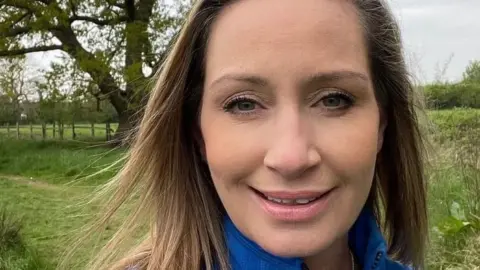 Police handout
Police handoutPolice searching for missing Nicola Bulley have found a body in the river.
The mother-of two disappeared during a riverside dog walk in St Michael's on Wyre in Lancashire three weeks ago, sparking a major search operation.
Lancashire Police said they "sadly recovered a body" after they were called to the River Wyre near Rawcliffe Road at 11:35 GMT on Sunday.
A statement said formal identification had not yet been carried out "so we are unable to say" if it was Ms Bulley.
The death was currently being treated as "unexplained", it added.
"Nicola's family have been informed of developments and our thoughts are with them at this most difficult of times. We ask that their privacy is respected," Lancashire Police said.
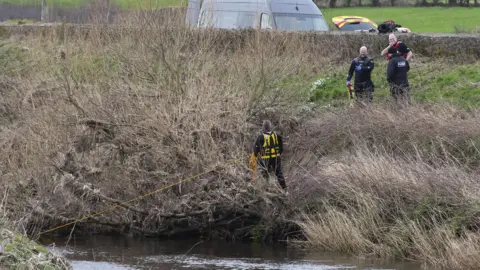 PA Media
PA MediaHome Secretary Suella Braverman described the developments as "heart-breaking and distressing". She tweeted: "My thoughts remain with Nicola's family at this extremely difficult time."
Ms Bulley, who worked as a mortgage adviser, was last seen walking her springer spaniel Willow after dropping off her two daughters, aged six and nine, at school on 27 January.
Her dog was found shortly after, along with her phone - still connected to a work conference call - on a bench by a steep riverbank.
Police previously said they believed the 45-year-old had gone into the river and that her disappearance was not suspicious.
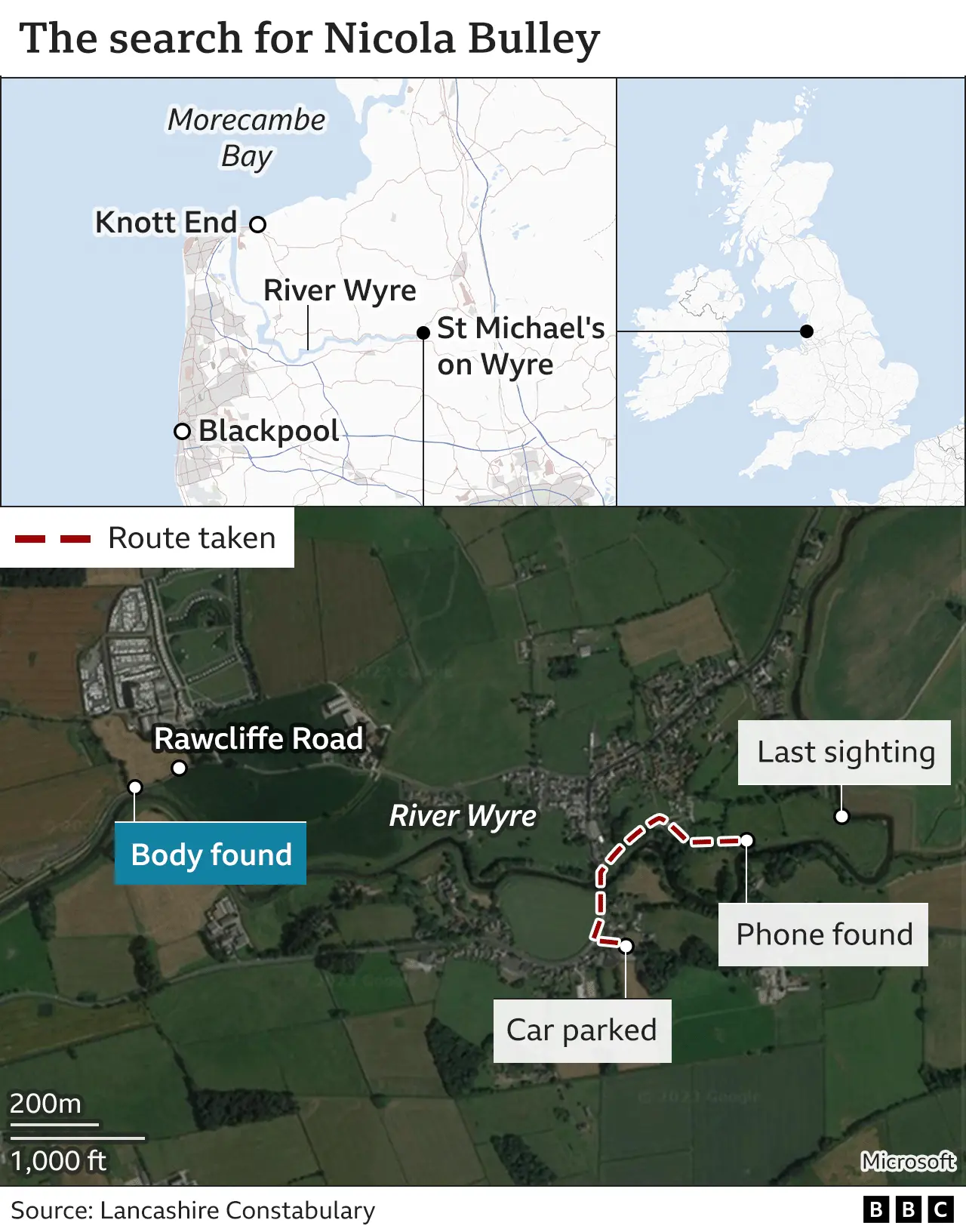
The body was found about a mile from where she was last seen in the small village of St Michael's on Wyre.
The search drew huge interest, with large numbers of people visiting and filming around the area.
It led to police issuing dispersal notices and warnings over anti-social behaviour.
Following various theories spread on social media, her family said public focus had "distracted from finding Nikki".
Lancashire Police faced a backlash after disclosing Ms Bulley's struggles with the menopause and alcohol, which they said was "to avoid any further speculation".
Ms Bulley's family said they were aware that police were revealing the details, adding: "Although we know that Nikki would not have wanted this, there are people out there speculating and threatening to sell stories about her."
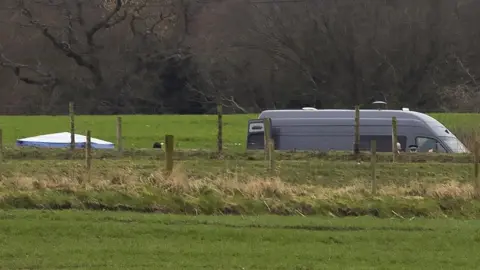 PA Media
PA MediaConcerns were expressed by the prime minister, the Commons leader and home secretary.
Lancashire Police said it would conduct an internal review into its investigation, led by its head of crime Det Ch Supt Pauline Stables.
The UK's information commissioner John Edwards also said that "given the high-profile nature of this case, we will be asking Lancashire Police to set out how they reached the decision to disclose this information".

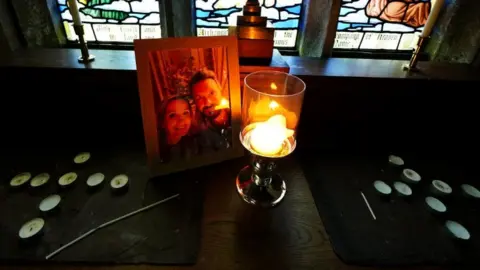 PA Media
PA MediaAnalysis by Mark Easton, BBC News home editor
The fact that the body - yet to be formally identified as Nicola Bulley - was found less than a mile from where she disappeared raises a lot of questions. Specifically, why did it take three weeks?
People will now be wondering whether the search was handled properly, which comes on top of a huge focus on the way Lancashire Police have conducted this investigation.
Since Ms Bulley went missing, police have said she was in the river. They seemed very confident of that from the start, despite some of the family's concerns about their conviction.
How is it then, after all those extensive searches and police saying that was where she was, her body was potentially so close? It is worth remembering that this river is not enormous - it is a small stream in parts.
At the heart of this investigation comes the question of how police dealt with the disappearance of a woman - specifically the information they shared about her with the public and their ability to deal with the spotlight of attention that suddenly arrived in Lancashire.

A security firm was hired by local residents following concerns about people, including social media influencers, visiting the village - some of whom were said to be peering through windows and trying to open doors.
One influencer was detained and fined after posting that he had been in "people's back gardens at night-time with torches".
Peter Bleksley, a former Scotland Yard detective, told the BBC that the number of people going to the scene would have been "catastrophic for the collection of evidence".
Two people were also arrested after malicious messages were sent to parish councillors in relation to the case.
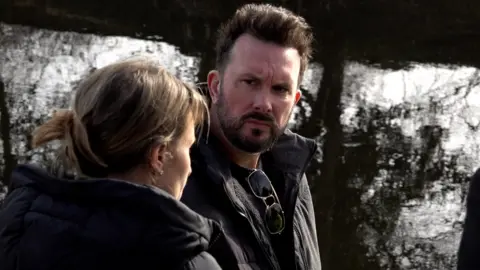 PA Media
PA MediaDal Babu, a former chief superintendent at the Metropolitan Police, said interest in the case was because people thought they were "experts".
He said officers did not usually "release sensitive information about individuals but I think what's happened on this occasion is the unprecedented amount of speculation".
He added that "police really need to be having that conversation to look at what happens when you have an unprecedented interest on social media".

Why not follow BBC North West on Facebook, Twitter and Instagram? You can also send story ideas to [email protected]
